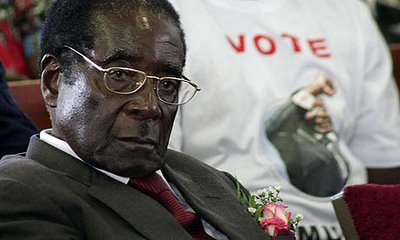Momentum toward Irish unity and self-determination for the people of Ireland is continuing to grow.
The party I represent, Sinn Féin, believes that Irish unity is the only platform on which we can build an Ireland of equals.
In 1998, the Good Friday Agreement (GFA) was overwhelmingly endorsed by the people of Ireland, north and south. This internationally recognized accord was fully supported by successive US administrations and houses of Congress, Canadian governments, and the European Union, and it was registered at the United Nations. It provides a democratic and peaceful path toward Irish reunification — a pathway denied to previous generations of Irish republicans.
For the first time, Britain’s control of the North of Ireland was conditional on the will of the majority of citizens there.
International support for the peace process has been significant. Irish society has also changed dramatically as a result of that same peace process. In the north of Ireland, Sinn Féin will contest the upcoming Assembly election in May 2022 to return our largest-ever team of representatives.
The significance of this cannot be overstated. On the opening of the northern parliament after the partition of Ireland in 1921, the statelet’s first prime minister declared it “a Protestant parliament for a Protestant people.” The monopoly of power held by political unionism at the time of partition is no longer. The Executive that governs in the north now consists of Sinn Féin, the Democratic Unionist Party (DUP), the Social Democratic and Labour Party (SDLP), the Ulster Unionist Party (UUP), and the Alliance Party.
Similarly, a significant realignment has taken place in the twenty-six-county southern state. Sinn Féin has consistently built support and, at the time of writing, is the biggest party south of the border, with thirty-seven TDs (teachta dála, members of the 160-member parliament), five seanadóirí (senators), and an all-Ireland vote tally of nearly 800,000.
Despite this result, Fianna Fáil, Fine Gael, and the Green Party have coalesced to form a government that omits Sinn Féin. Since this watershed election in February 2020, Sinn Féin, led by Mary Lou McDonald, has provided the most formidable opposition in the history of the State. In fact, Mary Lou is the first woman in the history of the state to lead the official opposition. We are confident that Sinn Féin can lead the next government in Ireland.
Brexit, coupled with the ongoing realignment of politics in Ireland, has resulted in a renewed sense of urgency and optimism around the national question.
The ongoing and developing conversation around Irish unity now needs to move to the next stage: preparation and planning.
For a referendum, there are some key actions that the Irish government needs to progress. Sinn Féin has called on the Dublin government to deliver the full implementation of the Good Friday Agreement, including guaranteeing the functioning of North-South institutions; the establishment of a joint Oireachtas committee on Irish unity, the setting up of an all-island-inclusive citizens’ assembly to discuss and plan for unity, and the publication of a “White Paper” road map to Irish unity.
We have witnessed the chaos and confusion Brexit has created — and this cannot be countenanced in the Irish unity campaign. We want a referendum in which people know what they are voting for, where they are well informed about what the new constitutional arrangements and the new Ireland might look like. The Irish government must start the process of planning and setting out new arrangements urgently.
The Irish government must become a persuader for a united Ireland. It must honor its constitutional obligation to work toward national reunification, and it must bring the focus of the international community to the unity campaign. The government must secure the referendum on unity in line the commitments of the Good Friday Agreement and let the people have their say.
The British government cannot deny the right of the people to self-determination. The British secretary of state has the discretion to call a unity referendum at any time — and, under the terms of the Good Friday Agreement, they are compelled to call one when it appears likely that the majority in the North of Ireland would vote for change.
Sinn Féin believe that time has come and that a date should now be set for the referendum.
A new and united Ireland must be a more prosperous, inclusive, and equal island. The economic outworkings of reunification would have a positive impact on the Irish economy as a whole. The outdated arguments that “we can’t afford it” do not have any basis in reality.
The demand for unity among the Irish people is growing. It is time to plan and allow all of the people to have a say in their constitutional future. It is important, too, that we respect the legitimate concerns of our unionist neighbors and work toward a new constitutional arrangement where everyone’s culture and traditions are respected. We can do it.
The American political system, the Irish American diaspora, and all American citizens supported the Irish peace process, as did the European Union and Canada. A referendum on Irish unity is a core part of the Good Friday Agreement, and it is welcome that the agreement is supported in all its parts by those who strive for peace the world over. I am confident that the international community will continue to support our quest for independence and reunification.
Partition has hampered Ireland’s ability to take its rightful place among the small nations of the earth — and it has been a destructive force in terms of building the nation that the people of Ireland, its diaspora, and its many international supporters wish for it to be.
Unity is the basis on which Ireland can thrive as a country, upon which a new nation can be built — a real republic that is outward-looking, forward-thinking, inclusive of all, and a global leader. The call from Ireland is that it is time for Irish reunification, it is time to plan, and it is time to deliver. Onward to the republic,
An Phoblacht Abú.



